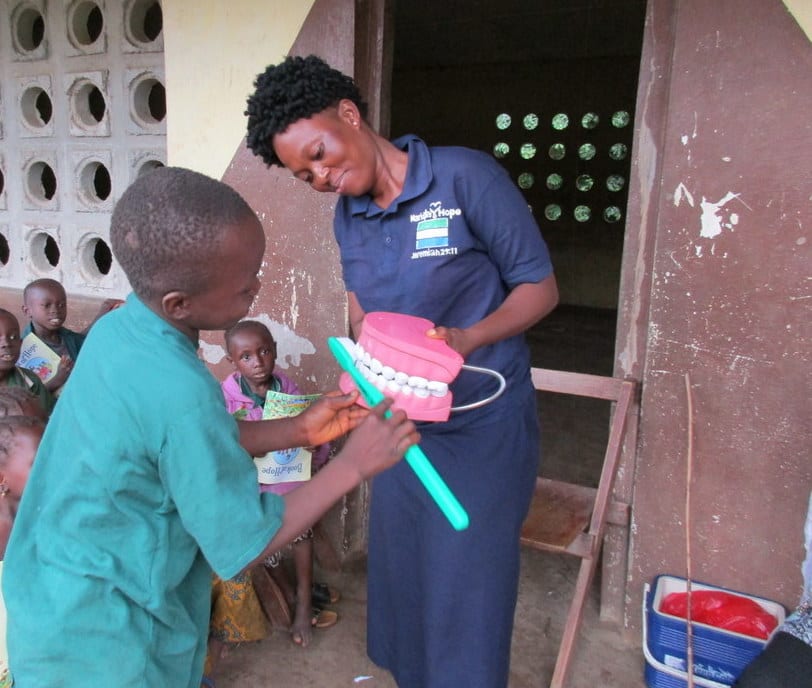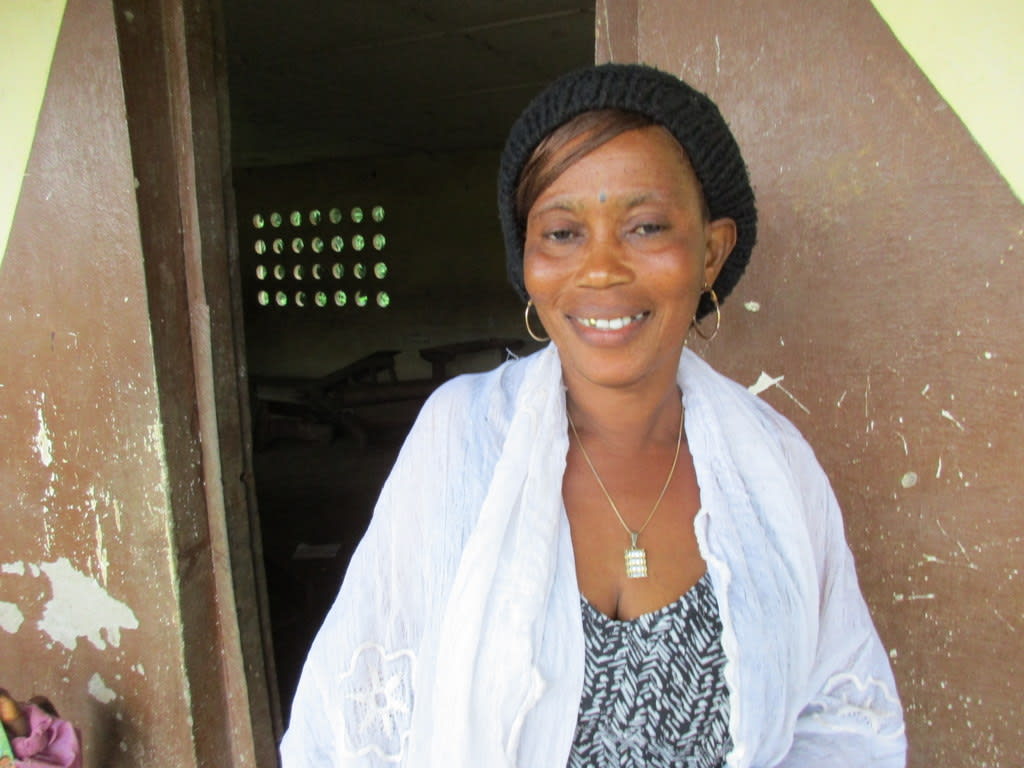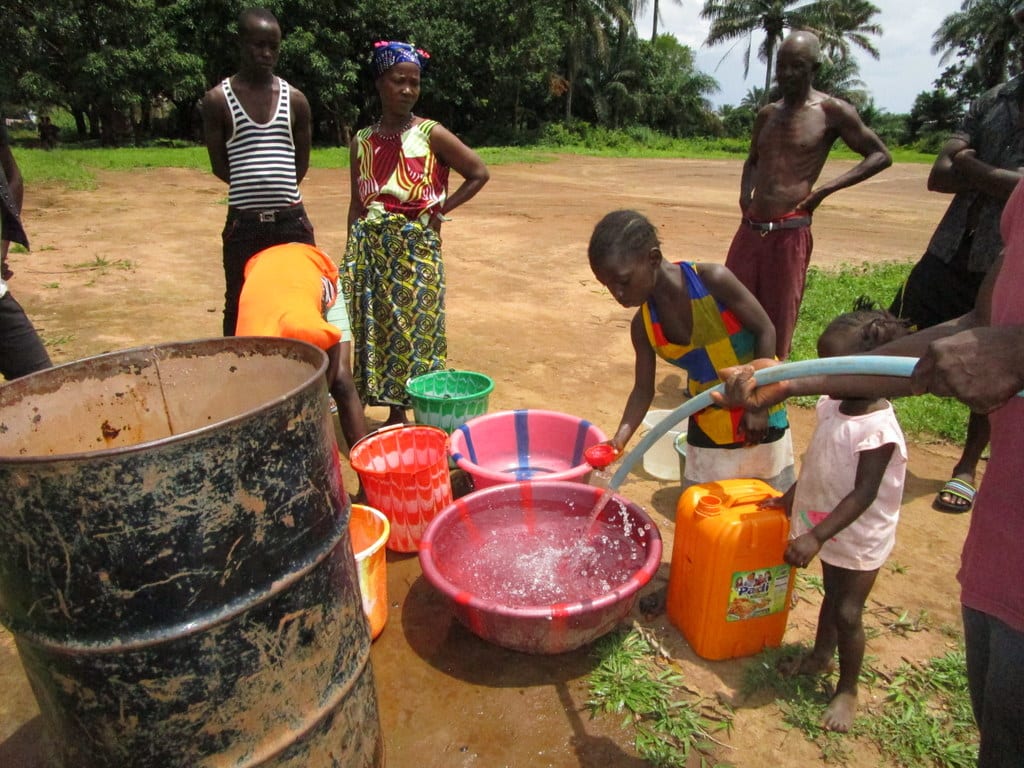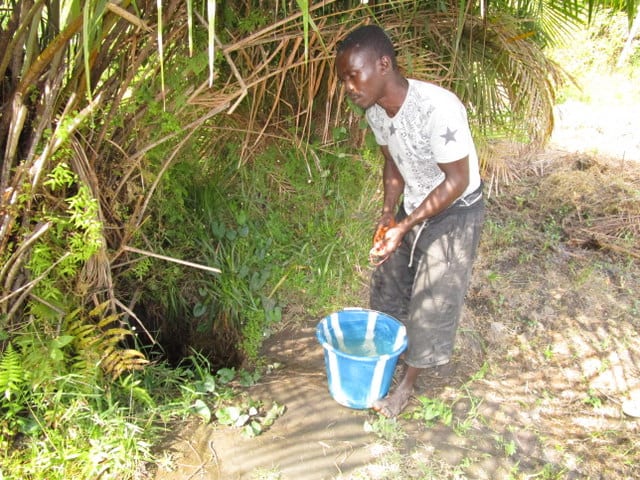This project is a part of our shared program with Mariatu’s Hope of Sierra Leone. Our team is pleased to directly share the below report (edited for clarity, as needed).
Welcome to the School
Gbainty Bunlor, in their local language, means "an area of fishing" which indicates the livelihood of most men and women.
Kulafai Rashideen Primary School was founded in September 2000, comprised of just a small thatched house in Gbainty Bunlor. It started with a roll of 30 to 35 pupils and three teachers in all, one Arabic teacher and two English teachers. In 2003, the Islamic World Bank constructed five classrooms and a staff building. Thanks to these facilities, the community can now boast of a safe and convenient building for their children to learn.
In 2007, 17 pupils attempted the National Primary School Examination (NPSE). With great assistance from teachers, Mohamed Koroma obtained a good score of 272 marks. Since then, the school has been doing very well in taking part both in external and internal exams.
However, there have been challenges along the way. The school has not been registered with the Ministry of Education: Science and Technology, so these teachers who are not on government payroll find life more challenging. Nonetheless, there is hope as they wait for the government to accept their application.
A normal day starts early in the morning when families gather together for their Muslim subs prayer. After that, mothers heat leftover food for the family, children prepare for school and fathers leave home for either fishing or farming.
When all the children have left, the mothers will go to the market to sell any goods they have [fish or their crops]. Family members start returning home towards the end of the day, as mothers prepare the evening meal so that everyone can eat before the 8 PM prayers.
Though Gbainty Bunlor is isolated, it draws a lot of business as outsiders come seeking fresh fish and vegetables.
Water Situation
A well was installed at the school over 10 years ago. We've been visiting it on a quarterly basis for the past couple of years to support the school and surrounding community in managing and maintaining the pump. But we started to uncover that during certain visits, we'd find the pump sitting abandoned. When pumping, no water would come out. Our mechanics opened up the well and discovered that it was going dry, and the community confirms that this begins in March and stretches until July.
The school is currently in distress, because they are in the midst of this dry season. The headteacher along with members of the community called our office and asked for our help, because they don’t want their pupils to have no choice but to return to the swamp to fetch water. The school is ready and willing to work with us so we can make this a year round clean water well.
Sanitation Situation
There are two buildings of four latrines each at the school, but they're not enough for the 267 students and 12 staff. A quarter of the households who use the well lack latrines, either sharing them with their neighbor or relieving themselves at the swamp (which happens to be where the alternative water source is).
There are no special hand-washing stations at the school, so students just use the water they fetch to rinse their hands. The surrounding families have no designated hand-washing containers either. Most people who use the well have clotheslines, but very few have dish racks to safely dry their utensils.
Farmer Pa Kabba Kamara told us that "because of the kind of work we do in this village, work like farming, fishing and petty trading, we are normally sick with cold and pain and sometimes due to the unkempt environment. We also experience sick such as malaria, typhoid and cholera."
Plans: Hygiene and Sanitation Training
There will be hygiene and sanitation training sessions offered to students, teachers, and community members for three days in a row.
No hand-washing stations were found here. After our visit, the hygiene and sanitation trainer decided it would be best to teach community members how to build a tippy tap (a hand-washing station built with a jerrycan, string, and sticks). They will use these tippy taps for hand-washing demonstrations, and will also teach about other tools like dish racks and the importance of properly penning in animals.
These trainings will also strengthen the water user committee that manages and maintains this well. They enforce proper behavior and report to us whenever they need our help solving a serious problem, like a pump breakdown.
Plans: Well Rehabilitation
The well marked for this overhaul is dry for four months every year and needs major work to supply adequate, clean water to the school and community year round. The pump will be removed, and a man will be lowered inside with a hand auger. This hand auger will allow the team to drill several meters deeper to hit a sufficient water column that will ensure the well supplies water throughout the drier seasons. As the team drills, casing will be installed, transforming this hand-dug well into a pseudo-borehole. PVC piping will connect this lower system directly to the pump, a construction that we know will also improve the quality of water.
Once this plan is implemented, everyone within the school and surrounding community will have access to safe drinking water in both quality and quantity, even through the dry months.

 Protected Dug Well
Protected Dug Well




























